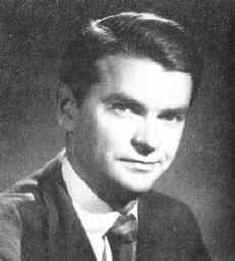

Sam Phillips is not just one of the most important producers in rock history. There's a good argument to be made that he is also one of the most important figures in 20th-century American culture. As owner of Sun Records and frequent producer of discs at his Sun Studios he was vital to launching the careers of Elvis Presley, Carl Perkins, Johnny Cash, Jerry Lee Lewis, B.B. King, Howlin' Wolf, Rufus Thomas and numerous other significant artists. Although he first made his mark (and a very deep one) with electric blues by Black performers, he will be most remembered for his rockabilly stars, particularly Elvis Presley.
|
|
|
Sam Phillips was born January 5, 1923, the youngest of eight children and was raised on a tenant farm just outside Florence, Alabama. In high school Phillips conducted the school band. His onstage presence impressed the manager of local WLAY radio so that he was hired as a part-time announcer. The Phillips were a typical middle class family until the Great Crash of 1929. Sam's father died in 1941 just after Pearl Harbor. He then dropped out of high school to help support his mother and deaf mute aunt. He worked first at a grocery and later a funeral home. It was while at the Brown-Service funeral home that Phillips learn how to handle people tactfully in emotional situations, a skill that later would serve him well.
|
|
Originally Phillips wanted to study law, but because of circumstances decided to go into radio. He went to Alabama Polytechnical Institute in Auburn, Alabama where he majored in engineering, including audio engineering for radio. In broke into radio in 1940 when he conducted and emceed the band for a college concert. This impressed Jim Connally the station manager at WLAY enough that he hired Phillips.
|
|
|
|
In 1942 he married Rebecca Burns. Phillips next radio job was for three years at WMSL in Decatur, Alabama, then to WLAC in Nashville, Tennessee and finally in June, 1945 to WREC. At WREC he hosted the "Songs of the West" show daily at 4 PM. There he was able to put his engineering skills into use. In those days many programs were prerecorded on 16 inch acetate discs which were often duplicated and passed to other stations. Thus the radio engineers were also recording engineers and thus Phillips was able to develop his recording skills. He also took care of the station's sound effects and found records for its library.
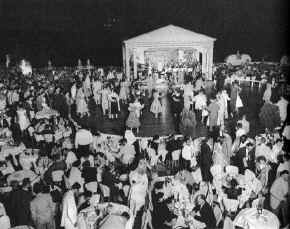
Skyway Ballroom
Photo courtesy Sam Phillips family
While at WREC he hosted "Saturday Afternoon Tea Dance" where he played jazz, blues and pop from the Skyway Room of the Peabody Hotel. The shows were broadcast nationally over the CBS radio network
|
706 Union Street |
|
In October 1949 Phillips signed a lease on a small storefront located at 706 Union Avenue near downtown Memphis. The rent was $150 a month. With the help of two year loan from Buck Turner, a regular performer at WREC, he installed recording equipment. The Memphis recording studio opened in January 1950 with the slogan "We Record Anything-Anywhere- Anytime." With a Presto five-input mixer board and Presto PT900 portable tape recorder in the trunk of his car, Phillips would whatever weddings, funerals or religious gatherings he could book.
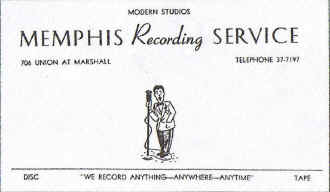 |
|
|
Most of his early commercial recordings were done onto acetate rather than than at that time unproven tape. By1954 he had upgraded his equipment and installed two Ampex 350 recorders: one a console model and another mounted behind his head for the tape delay echo, or slapback.
Memphis Recording Studio's first paying job was transcriptions of Buck Turner's band for the Arkansas Rural Electrification Program. These were distributed to fifteen to twenty stations throughout the mid-South. It was probably five or six months later that Phillips decided to record artists to sell or lease masters.
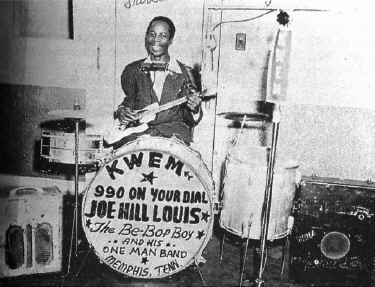
Phillips along with his friend Dewey Phillips decided to start their own record label. The new label was simply called Phillips - "The Hottest Thing in the Country." The first record was "Boogie in the Park" by Joe Hill Louis. On August 30, 1950 three hundred copies were pressed and shipped to Music Distribution in Memphis.
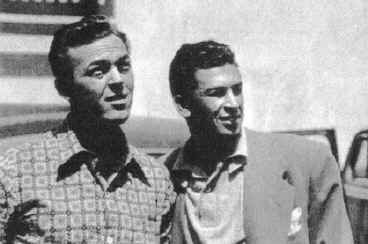
Saul and Joe Bihari
Photo courtesy Michael Bihari
Phillips decided to get out of the manufacturing end of the business as his relationship the Biharis (Joe, Saul and Jules) Modern Records grew. The Biharis had started a subsidiary RPM Records for music with a down home feel. At first Phillips sent them samples of Joe Hill, a local gospel group and jazz pianist Phineas Newborn, Jr
.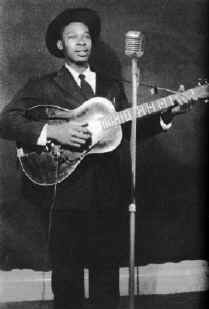
Riley (B.B.) King
Photo courtesy B.B. King Museum
In 1950 Jules Bihari signed B.B. King to a contract and placed him with Phillips. Working under Bihari's direct Phillips recorded King from mid-1950 until June 1951. The Biharis released five singles from the material Phillips sent, making King one of the first artists on their new RPM subsidiary.Phillips' involvement with King would later end a casualty of the dispute between the Biharis and Phillips over the placing of "Rocket 88" with Chess Records.
|
|
The turning point for Phillips occurred on March 5, 1951 That was the day that Ike Turner and his band featuring Jackie Brenston drove from Clarksville, Mississippi to Memphis to see Phillips. It seems that the band had been working on a song called "Rocket 88, after the Oldsmobile that they decided to play for him.
It seems while driving from Clarksdale, guitarist Willie Kizart's amp fell off the top of the car, breaking the speaker cone. This distorted to sound making the guitar sound like a saxophone. Phillips choose to over amplify it making it the centerpiece of the rhythm track. With Kizart playing simplified boogie riff in unison with Ike Turner on piano, Raymond Hill contributed two tenor sax solos and Jackie Brenston a highly confident vocal. Phillips ran off some dubs and sent them to the Chess brothers that same night. Released on April 1951, "Rocket 88" reached the charts in May, hit number one in June and eventually became the second biggest R&B record of the year.
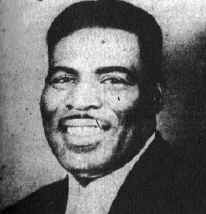
Chester "Howlin' Wolf" Burnette
In the spring of 1951 Phillips recorded a demo session with Chester Burnett a.k.a Howlin' Wolf. Wolf recorded "How Many More Years" and "Baby Ride With Me". It is believe that Phillips sent dubs to RPM/Modern and possibly Chess. It was almost certainly agreed that RPM agreed to sign Wolf, but this was the time Phillips was and the Biharis were having there falling out over Rocket 88 and he sold Wolf's contract to Chess. He re-recorded "How Many More Years" and "Moanin' at Midnight" which formed his first single. Howlin' Wolf's last recorded in the Sun studios in October 1952. Phillips soon became strained with the Chess Brothers which led to the founding of Sun Records.
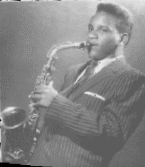
Despite the national exposure Phillips could hardly pay the bills. He quit the radio station to concentrate his time solely on recording activities. Beginning to face competition for local talent he decided to sell records through his own label. He decided to call his company Sun because he believed it was the universal power. The first Sun release in March 1952: "Drivin' Slow" was by Johnny London, a sixteen year old black saxophone player.
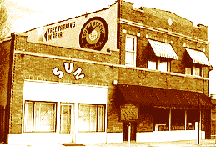
About this time Phillips faced a problem with the company's name. It seems there was another Sun label in Albuquerque, New Mexico that had been founded at about the same time. However nothing came of it.
Another problem was the Memphis based Duke label. Duke signed local pianist John Alexander, whom they renamed Johnny Ace. Ace's first release "My Song" became a number one R&B hit. The label then signed Bobby Bland who Phillips had recorded briefly for Chess. Poised to become a big factor in the R&B market. Success brought Duke the same problems faced by other small independents the inability to collect on the shipments of "My Song". In July 1952 they were forced to sell to Don Robey at Peacock Records in Houston.
During the summer of 1953, Elvis Presley came to the Memphis Recording Service to make a record. Presley recorded "My Happiness" and "This Is Where Your Heartache Begins" to give the record to his mother, Gladys, for a birthday present.The fact is that Gladys' birthday was in the spring and it is more likely that Presley made the record for himself, to hear how he sounded.
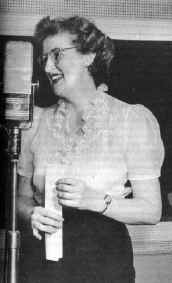
Either Sam Phillips or his assistant, Marion Keisker noted that Presley had a good feel for ballads and that he should be invited back.Almost a year later, in May June 1954, Keisker Phillips called Presley back for an audition. On Saturday, June 26, 1954, Elvis came to Sun Studios for an audition. He tried in vain to sing a song Sam was working with entitled, "Without You." Sam had Elvis sing most his repertoire.
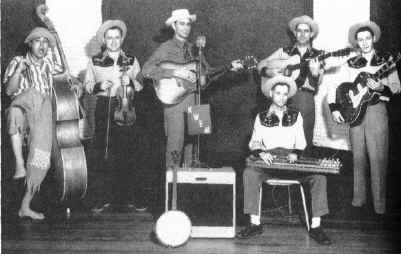
Sam called Scotty Moore and with Bill Black, the bass player from
Scotty's band, the Starlight Wranglers, and told them to work up
some material. Scotty and Bill auditioned Elvis on Sunday, the
Fourth of July, 1954, at Scotty Moore's house. Scotty Moore and
Bill Black were not overly impressed with the young crooner
either. He could sing a little bit, and there was this
indefinable quality that made you want to like him. Scotty called
Sam. They agreed a session would be useful to see what they had.
On Monday evening, July 5, 1954, Elvis, Scotty
and Bill went to Sun Records for their first recording session.
They were nervous despite Sam Phillips' efforts to loosen things
up. They worked in vain on the Bing Crosby hit, "Harbor
Lights," and on the country ballad, "I Love You
Because." Finally they took a break late in the evening.
During the break Elvis picked up his guitar and started clowning
around, playing the fool on ``That's Alright Mama," the
Arthur "Big Boy" Crudup blues song. Elvis went up-tempo
as first Bill, and then Scotty, joined in. In the control booth
Sam Phillips heard the sound, the "new" music, he had
been looking for. He stuck his head out the door asking,
"What are you doing?" The boys answered, "We don't
know." Turning on the tape Sam said, "Well, back it up,
try to find a place to start, and do it again." Rock n' roll
was born.
During the next eighteen months Sam Phillips worked tirelessly
promoting Elvis. Sam was Sun Records. He produced, engineered,
and marketed the Sun label. Elvis Presley, his rising star, took
all his attention. It was retail marketing, one record
distributor, one record store, at a time. Sam loaded up his
Cadillac with records and hit the road, traveling from city to
city sixteen hours a day. In addition he booked engagements for
Elvis and the Blue Moon Boys, the name of the new group, in
venues like the Grand Ole Opry and the Louisiana Hayride. The
Elvis Presley phenomena had begun, and its engine was Sam
Phillips.
|
|
|
Phillips launched radio station WHER on October 29, 1955. Each of the young women who auditioned for the station assumed there would only be one female announcer position, as was the case with other stations at that time. Only a few days before the first broadcast did they learn of the "All Girl Radio" format. It was the first all girl radio station in the US, as almost every position at the station was held by a woman
RCA Signing
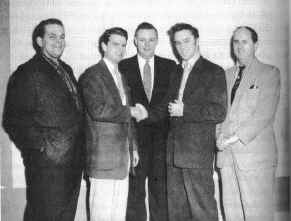
(L to R: Bob Neal, RCA attorney Coleman
Tily, Presley, Col. Tom Parker)
Photo courtesy Sam Phillips Family
By November 1955, Elvis Presley was on the verge of mega-stardom. He was a regional sensation throughout the South. Colonel Tom Parker had taken over his management. The music world was a buzz with rumors of how Elvis would enter the national scene. Sam Phillips sold Elvis Presley's contract to RCA Victor for 35,000 dollars, the highest amount paid at that time for a recording artist. He saw it as business decision that would benefit both himself and Elvis. Elvis deserved a national record distributor and Sam needed capitol to develop the talent that was coming to Sun Records based on Elvis's success.
|
|
|
|
|
With the success of Presley, other young country singers were drawn to Sun Records. Among them were Carl Perkins, Johnny Cash, Jerry Lee Lewis, Roy Orbison and Charlie Rich. Sam Phillips soon abandoned blues recording and concentrated on this new music, called rockabilly. Sun Records produced hit after hit. Carl Perkins was on the verge of major stardom with "Blue Suede Shoes," but was involved in a serious automobile accident which left him unable to cash in on his popularity. Jerry Lee Lewis had two giant smashes in "Whole Lotta Shakin' Goin' On" and "Great Balls of Fire". On a tour of England, the newspapers revealed that Lewis had married a 13 year old girl while not legally divorced from his previous wife. Lewis had to cut the tour short and come home, his career temporarily in ruins. Jerry Lee Lewis continued recording for Sun for several years but he never recovered from the bad publicly to have a hit of the magnitude of his first two. He was able to revive his career later by moving into country music on the Mercury Record label. Johnny Cash was probably the most consistent record seller on Sun but left the label for Columbia in 1958.
|
|
In the summer of 1958 Phillips brought property on 639 Madison Avenue in Memphis a few blocks from his old studio. Having at various times it had housed a Midas Muffler Shop and Hart's Bakery, Phillips gutted the interior and installed two modern recording studios on the first floor. On the second floor were new A&R and promotion offices and tape storage vault. The final touches were by Decor by Denise
|
|
|
|
By this time Phillips had separated from his wife Becky, and was living with Sally Wilbourn, who had joined Sun in late 1955. She moved with him now as office manager, as did promotion person Barbara Barnes. Scotty Moore was brought over from Fernwood Records in June 1960 and was made studio manager and chief cutting engineer. Charles Underwood was hired as A&R manager and assistant engineer. Bill Fitzgerald, an early partner in Duke Records, was made general manager in August 1959. Cecil Scaife was hired as the promotion manager.

Shortly after opening the studio, Phillips decided to open one in Nashville. Having already leased space in the Cumberland Lodge building for his publishing companies, Phillips looked at a small studio that had been built there. After attending a recording session, Phillips bought it and hired Billy Sherill as his engineer.
The studio opened in February 1961. At the inaugural session Jerry Lee Lewis cut "What'd I Say." Two days later Charlie Rich recorded "Who Will the Next Fool Be."
Phillips sold the studio in February 1964 after a plaque of minor problems and one annoyance. In Nashville musicians worked under American Federation of Musician guidelines which called for four songs from a three hour session, with overtime pay for run overuse. When Phillips attempted to bring in his own musicians he was met with opposition from the locals.
Phillips first offered the studio to Cecil Scaife, but Fred Foster of Monument Records ultimately bought it on February 10,1964, for $175,000 for the studio and all its physical assets. Phillips also agreed to not to enter into a recording business in Nashville for at least five years,
Attempting to maintain its market share in the 60s Phillips attempted diversification. In doing so he seem to lose focus and the records seemed to lose his own personal stamp.
Feeling Sun was to closely associated with rock and roll, Phillips started Phillips International. Among the first releases was "Raunchy." This would mark the company's high point, but other hits proved to be elusive. The label was folded in 1963.
In the 60s things were changing as top selling artists were lured away from the small companies and the indie labels were bought. The days of getting a few cuts on tape, mastered, pressed and promoted for a few hundred dollars were over.
The market changed to albums with singles as loss leaders for the LP's. Phillips never believed in albums as he refused to issue inferior filler product.
Since the mid-60s Phillips had received offers to buy the company. Columbia/Capitol had been one wishing to get the Cash masters. In 1962 he had considered a deal with Mercury that fell though. Jerry Wexler from Atlantic attempt a Stax-like deal, but nothing was finalized.

On July 1, 1969 Phillips sold Sun to record executive Shelby Singleton for $1 million, while retaining 20% interest.
In 1986 Sam Phillips was part of the first group inducted into the Rock and Roll Hall of Fame, and his pioneering contribution to the genre has been recognized by the Rockabilly Hall of Fame. He was the first non-performer inducted. In 1987, he was inducted into the Alabama Music Hall of Fame. He received a Grammy Trustees Award for lifetime achievement in 1991. In 1998, he was inducted into the Blues Hall of Fame, and in October 2001 he was inducted into the Country Music Hall of Fame.

Phillips died of respiratory failure at St. Francis Hospital in Memphis, Tennessee on July 30, 2003, only one day before the original Sun Studio was designated a National Historic Landmark. Sam Phillips rests in the Garden of Trees Mausoleum in the Memorial Park Cemetery in Memphis. Among his honorary pallbearers were Isaac Hayes, B.B. King, Jerry Lee Lewis, and Johnny Cash.

Sun Studio today
Postscript
|
|
Sam Phillips had the good fortune to make big money and better fortune to invest it wisely. As Sun Records wound down he wisely bought radio stations, Holiday Inn stock and properties with mineral rights. When Holiday went public Phillips bought 200 shares at $9.75 a share. Thirty years later, he sold the stock which had grown to 4000 shares through stock splits at approximately $70 a share.
Phillips and his family founded Big River Broadcasting Corporation which owns and operates several radio stations in the Florence, Alabama, area, including WQLT-FM, WSBM, and WXFL
Sam Phillips was inducted into the Rock and Roll Hall of Fame in 1986.
The Birth of Rock 'n' Roll: A Coversation with Author Peter Guarlnick